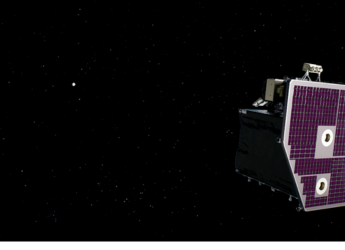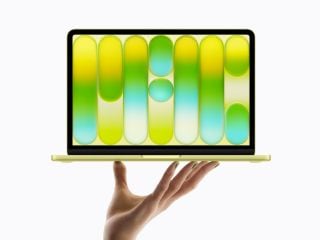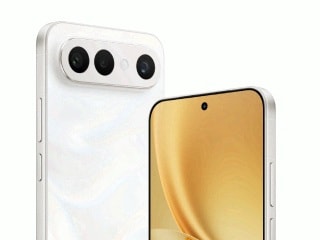- Home
- Science
- Science News
- Elon Musk's Neuralink Lets a Monkey Play Pong With His Mind: Watch Video
Elon Musk's Neuralink Lets a Monkey Play Pong With His Mind: Watch Video
Neuralink aims to make using computers and smartphones easier for people with disabilities through brain-machine interface.

Photo Credit: Neuralink
Neuralink shows Pager the monkey playing Pong using signals from his mind
Elon Musk's Neuralink startup is developing a brain-machine interface that will enable users to control computers and smartphones directly from their brain. Founded in 2016, Neuralink is now demonstrating the progress it has made over the years by showing a macaque named Pager playing Pong video game using a N1 neural link chip. In the shared video, Pager first uses a joystick and then uses the signals from his brain to control the cursor on the screen. The aim of Neuralink is to enable people with paralysis to operate computers and other devices with ease using the electrical signals from their brains.
Neuralink showcased their development through a blog post, highlighting the use of the neural implant in helping people with disabilities. The company said that the N1 link is a 1,024-electrode fully-implanted neural recording and data transmission device. “We have implanted the Link in the hand and arm areas of the motor cortex, a part of the brain that is involved in planning and executing movements. We placed Links bilaterally: one in the left motor cortex (which controls movements of the right side of the body) and another in the right motor cortex (which controls the left side of the body).”
Elon Musk on Friday tweeted that “later versions of the Neuralink will be able to shunt signals from Neuralinks in brain to Neuralinks in body motor/sensory neuron clusters, thus enabling, for example, paraplegics to walk again”
First @Neuralink product will enable someone with paralysis to use a smartphone with their mind faster than someone using thumbs
— Elon Musk (@elonmusk) April 9, 2021
The blog post by Neuralink also highlighted how the N1 link “amplifies and digitises” the voltage recorded from each of its 1,024 electrodes. The startup is also employing decades of research and states that previous brain-machine interface (BMI) systems used only a few hundred electrodes. Neuralink wants to “build a safe and effective clinical BMI system that is wireless and fully implantable” that can not only be used by users by themselves, but can also be carried along wherever they go.
What is the best phone under Rs. 15,000 in India right now? We discussed this on Orbital, the Gadgets 360 podcast. Later (starting at 27:54), we speak to OK Computer creators Neil Pagedar and Pooja Shetty. Orbital is available on Apple Podcasts, Google Podcasts, Spotify, and wherever you get your podcasts.
For details of the latest launches and news from Samsung, Xiaomi, Realme, OnePlus, Oppo and other companies at the Mobile World Congress in Barcelona, visit our MWC 2026 hub.
Related Stories
- Samsung Galaxy Unpacked 2026
- iPhone 17 Pro Max
- ChatGPT
- iOS 26
- Laptop Under 50000
- Smartwatch Under 10000
- Apple Vision Pro
- Oneplus 12
- OnePlus Nord CE 3 Lite 5G
- iPhone 13
- Xiaomi 14 Pro
- Oppo Find N3
- Tecno Spark Go (2023)
- Realme V30
- Best Phones Under 25000
- Samsung Galaxy S24 Series
- Cryptocurrency
- iQoo 12
- Samsung Galaxy S24 Ultra
- Giottus
- Samsung Galaxy Z Flip 5
- Apple 'Scary Fast'
- Housefull 5
- GoPro Hero 12 Black Review
- Invincible Season 2
- JioGlass
- HD Ready TV
- Latest Mobile Phones
- Compare Phones
- Vivo X300 FE
- Tecno Pop X
- Apple iPhone 17e
- AI+ Pulse 2
- Motorola Razr Fold
- Honor Magic V6
- Leica Leitzphone
- Samsung Galaxy S26+
- MacBook Neo
- MacBook Pro 16-Inch (M5 Max, 2026)
- Tecno Megapad 2
- Apple iPad Air 13-Inch (2026) Wi-Fi + Cellular
- Tecno Watch GT 1S
- Huawei Watch GT Runner 2
- Xiaomi QLED TV X Pro 75
- Haier H5E Series
- Asus ROG Ally
- Nintendo Switch Lite
- Haier 1.6 Ton 5 Star Inverter Split AC (HSU19G-MZAID5BN-INV)
- Haier 1.6 Ton 5 Star Inverter Split AC (HSU19G-MZAIM5BN-INV)















